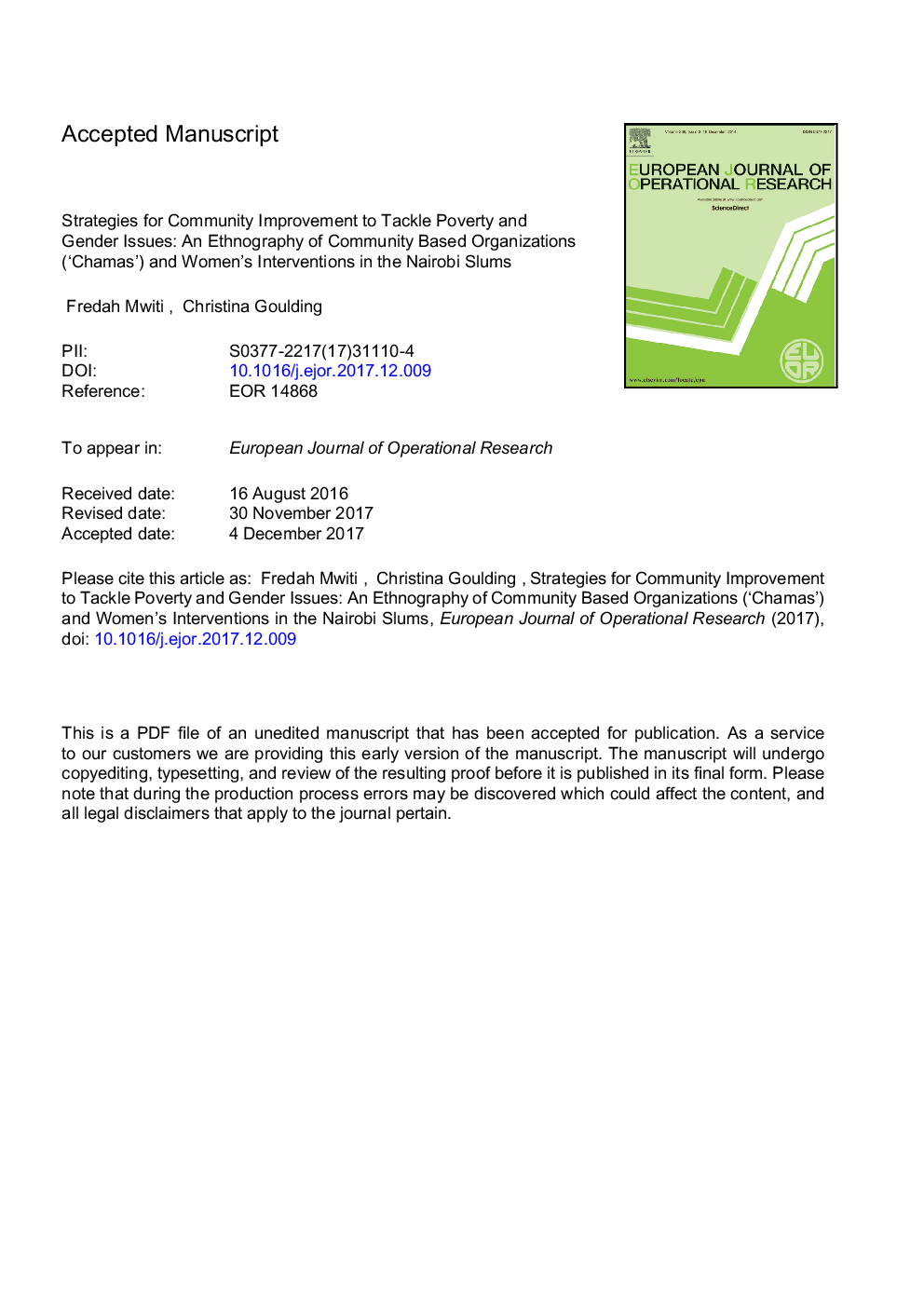| Article ID | Journal | Published Year | Pages | File Type |
|---|---|---|---|---|
| 6894786 | European Journal of Operational Research | 2018 | 31 Pages |
Abstract
Marginalized communities in developing countries are faced with a myriad of challenges, and women bear the significant brunt of these. In particular, women in patriarchal communities are vulnerable in these environments as they are constrained by gendered exclusions, expectations, norms and roles, as well as inequitable access to resources. In order to cope, these women form community organizations that give them a platform to organize as collectives and confront some of the challenges. Our study focuses on specific interventions with community organizations (Chamas) that are formed by women living in poverty in the slums of Nairobi, Kenya. We employed an ethnographic approach that included participant observation and interviews, combined with Community-Based Operations Research (CBOR) and Value-Focused Thinking (VFT), to examine the notions of gender, intersectionality and agency in the context of a developing country. These approaches were deemed appropriate as they allowed a deep immersion into the participants' worlds, as well as the consideration of the participants' (and facilitators') values that shaped their worldviews. The findings revealed that the gendered values held by the participants (and facilitators) intersected with other lived experiences to influence decision-making during the interventions. We therefore conclude that, because of this, the decisions reached need to be considered as negotiated, rather than optimal.
Related Topics
Physical Sciences and Engineering
Computer Science
Computer Science (General)
Authors
Fredah Mwiti, Christina Goulding,
